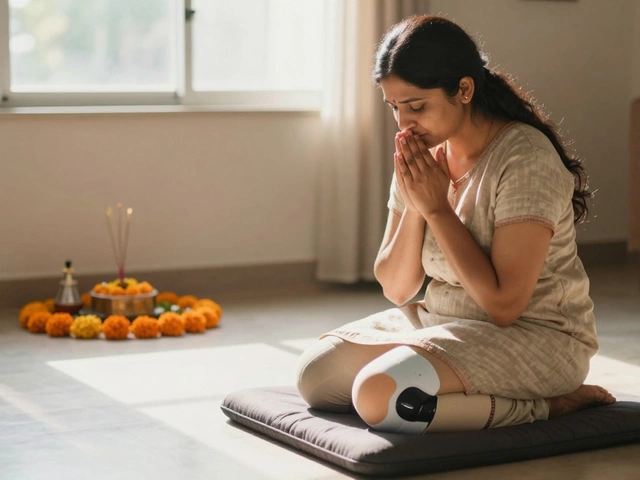Holistic Healing Made Easy: Natural Tips for Everyday Wellness
When you hear "holistic healing" you probably picture a mix of herbs, yoga mats, and a calm mind. It’s actually just a practical way to look at health as a whole—body, mind, and spirit working together. Below you’ll find clear, no‑fluff advice you can start using right now, plus quick pointers to deeper reads on our site.
What Exactly Is Holistic Healing?
Think of your body like a car. You wouldn’t only change the oil and ignore the brakes, right? Holistic healing means caring for every part of your system. It includes nutrition, movement, sleep, stress management, and even the environment around you. The goal isn’t to replace modern medicine but to add layers of support that help you feel better faster and stay healthier longer.
One common question is whether traditional Indian practices, like Ayurveda, are safe. Our article "Are Ayurvedic Medicines Safe? Truths, Myths, and What You Need to Know" breaks down the real risks and the government standards that keep most products safe. Knowing the facts lets you enjoy the benefits without unexpected side effects.
Practical Holistic Practices You Can Try Today
1. Choose the right herbal supplements. Not every bottle labeled "herbal" is pure. Our guide "How to Choose the Best Herbal Supplements: Expert Tips for Safe Buying" shows you how to check sourcing, label accuracy, and third‑party testing. Start with well‑researched herbs like ashwagandha for stress, turmeric for inflammation, and ginseng for energy—just make sure they’re certified.
2. Add simple mind‑body habits. A five‑minute breathing routine in the morning can lower cortisol and improve focus. Pair it with a short walk or gentle stretches. If you’re dealing with anxiety or mild depression, reading our piece on "Most Overlooked Mental Illness: Understanding Dysthymia" can help you spot subtle signs and get the right help before things worsen.
3. Tune into preventive health checks. A complimentary health check‑up, explained in "Complimentary Health Check‑Up: Meaning, Inclusions, Benefits, and How to Use It (India 2025)", can catch early warning signs without extra cost. Knowing which tests matter for your age lets you act early, which is a core part of holistic care.
4. Keep your kidneys safe. Some herbs sound healthy but can harm kidneys. The article "Herbs That Harm Your Kidneys" lists the culprits and offers safer alternatives, so you don’t sacrifice one organ while trying to help another.
5. Balance nutrition with realistic goals. Want to drop weight fast? Our "How to Drop 20 Pounds Fast" guide gives science‑backed steps that focus on protein, fiber, and portion control—no extreme crash diets. Pair the diet plan with regular movement and sleep, and you’ll see lasting results.
All these steps fit into a holistic mindset: small, sustainable changes that add up. You don’t need a complete life overhaul overnight; start with one habit, track how you feel, then add another.
Remember, holistic healing is personal. What works for a friend might not be right for you, and that’s okay. Use the resources on our site to dig deeper into any topic that catches your eye, and feel free to experiment safely. Your body, mind, and spirit will thank you for the extra care.





